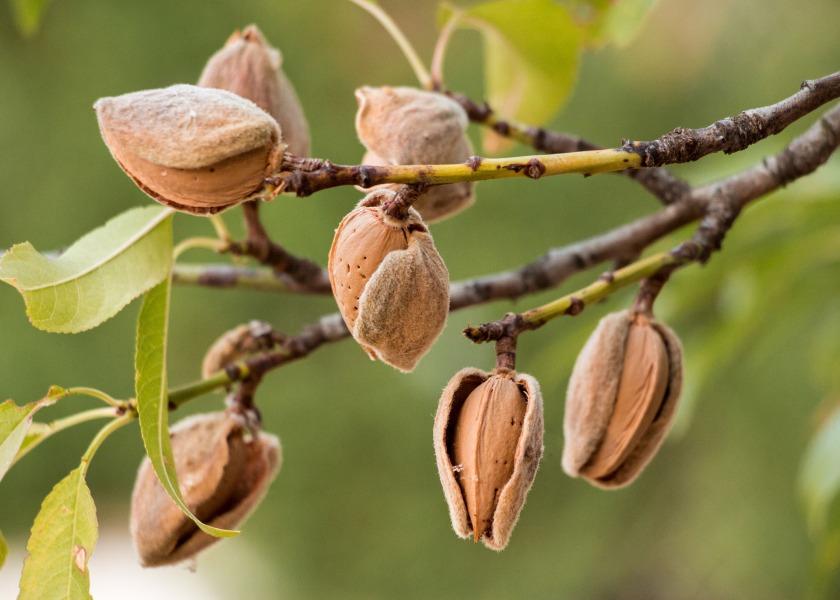California almond acreage shrinks for first time in 25 years

California’s tight water restrictions and low precipitation continues to challenge even the most creative farmers and ranchers. A recent report by Land IQ, commissioned by the Almond Board of California, confirms that even the resourceful almond industry has felt the sting of drought conditions.
For the first time in a quarter of a century, California’s almond acreage has decreased instead of grown, according to Land IQ, an agricultural and environmental research and consulting firm. In an August crop report, total almond tree acreage was estimated at 1.64 million acres, down from 1.66 million acres in August 2021, according to a news release.
Related: Senators urge USDA to improve drought support for Western growers
Land IQ also found that an estimated 30,000 acres were identified as stressed or abandoned. These acres were included in the total acreage because, according to Land IQ, they may still recover.
“Land IQ’s report may indicate a possible trend towards lower California almond acreage in the year ahead,” Richard Waycott, ABC president and CEO, said in a news release. “This acreage estimate was based on data collected through Aug. 31, so it does not reflect any additional removals that may have occurred as the harvest and post-harvest seasons progressed this fall. Those data will be incorporated in the next acreage estimate to be published in April 2023.”
Forecasting the remaining 2022-23 season
Almond crop production typically begins in August, with final shipments at the end of July the following year.
Echoing Land IQ’s findings, the USDA California almond forecast predicts 2022 production will come it at 2.80 billion pounds, 4% lower than 2.92 billion pounds in 2021.
Citing a dry winter and warmer temperatures in early 2022, the USDA forecast outlines how these factors contributed to “a shorter bloom period than in recent years” that was further affected by a late February freeze, causing frost damage in many orchards. While late-blooming almond varieties reported to have fared better than early blooming varieties, according to the USDA, “the 2022 crop is not expected to be as large as the past two years.”







